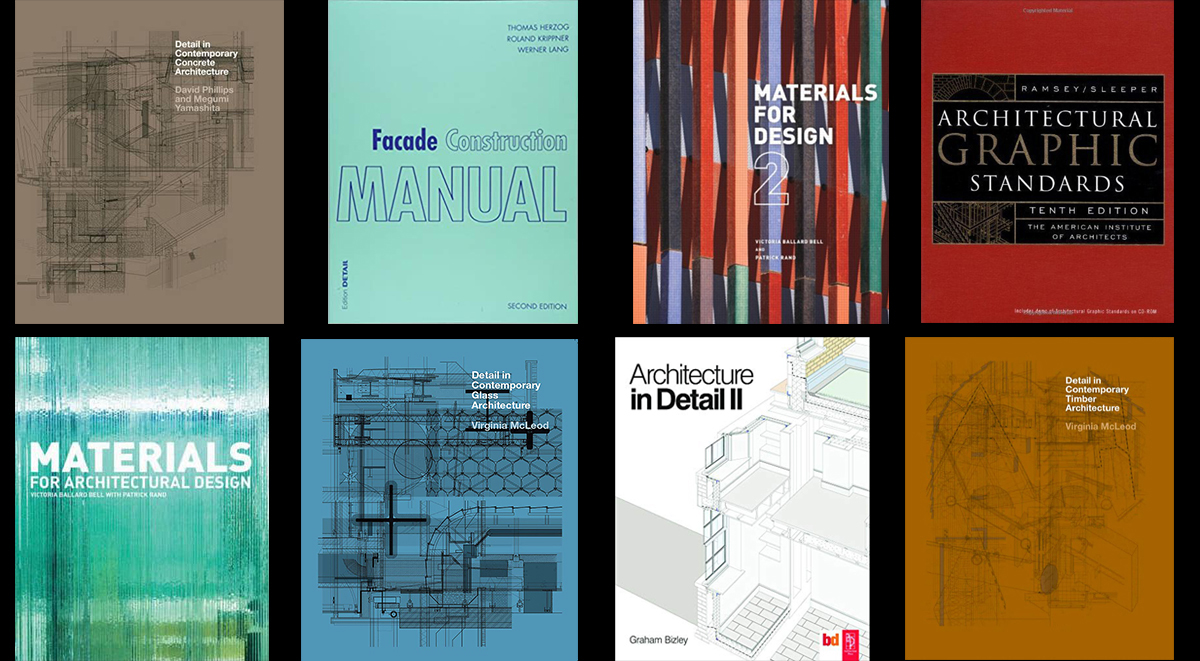We get asked a lot of good questions here on the show – they come up in the comment section, they are sent into our email inboxes, and some slide into our DM’s. Sometimes we reach out and ask people what they would like us to discuss – which is what’s happening today. We started with 10 questions and made our way through 7 of them before we hit our time limit. One of these days I think a fireside chat done in real time would be an interesting way to work through these questions. In the meantime … Welcome to Ep 146: Ask the Show Spring 2024!
[Note: If you are reading this via email, click here to access the on-site audio player] Podcast: Embed Subscribe: Apple Podcasts | Spotify | Android | iHeartRadio | TuneIn
Where is the next Bucket list Vacation? jump to 3:50
Question submitted by archaalto
Bob: I don’t have any vacations currently planned so I could choose any myriad of places. When deciding, my starting point begins with what time of year it is, which currently is looking like late spring or early summer. I have been thinking about going back to Germany but if I go there, I want to go back for Oktoberfest, but I don’t think I can last that long without some sort of vacation … l I honestly need a break. This might mean going somewhere warm, where there is plenty of sun and a beach involved. My daughter has a college spring break trip coming up and she will be vacationing in Puerto Rico … which means as a protective father, I have been doing all sorts of research on what to do and where to go in Puerto Rico. Based on my research so far, that probably means spending my time in Isla Verde.
Andrew: I do not have anything planned at the moment either. I recently planned a cross-country train trip for January that I did not end up taking. As I mentioned to Bob in the episode, this may bit too dorky for many, but I had a train trip planned across the southwest and up the west coast. It was essentially a 10-12 day train trip from Austin to Seattle through mountains and regions that are not typically seen by many people. It was a sleeping car with access to the viewing car with a glass top, of course, the dining car, and the bar car. I had a two-day layover in Palm Springs, CA, to do some mid-century modern house tours and then back on the train to LA and up the West Coast. I planned to fly back to Texas for the return portion of the trip. Train travel is slow and probably not for everyone, but it is something I have always wanted to do. I suppose at least now I know how to plan it again very quickly for the next attempt. But for now, there is nothing in my near future. Unfortunately, life is keeping me very busy at the moment, and this type of leisure is not easy to achieve. (see question 5 below).

Do you have any insight or recommendations on transitioning from peer to manager? jump to 8:56
Question submitted by dneuman27 (private account)
Bob: We did an entire episode on this topic – Ep 134: Management 101. There is a lot to this question because there is no one bullet point answer, but I will focus on one thing (you can go listen and read that post for all the bullet point items we came up with). However … some wording to this question leads me to believe this isn’t a question about becoming a manager, it was transitioning from PEER to manager, which suggests that you are now telling your buddies what they are supposed to be doing.
I’m sure there are animosity considerations at work here, but I am going to assume that you earned the promotion that led to you becoming a manager. If this is the case, the advice I have is to Lead by Example. People will generally listen and respond to people that they trust. This could manifest itself in a lot of different ways:
- The trust that you know what you are doing
- They trust that you won’t abuse or take advantage of them
- They trust that you have their best interests in mind and will advocate on their behalf.
Andrew: My advice here starts with being the type of manager you would like to have. If you are just moving ahead of your peer group, then you just came from a position that was being managed. How was that for you? Did you enjoy the management style of your manager? What could you do to improve? I think it is about being the type of manager you would like to see. Of course, this does not mean that you are everyone’s friend or buddy, but that you manage in a way that promotes fairness and consistency. I think that the issue of trust is important, but I also think that this is tied a bit to leadership and that you should not ask others to do things you cannot, would not, or have not done yourself. Personally, those were the types of leaders/managers that I did not enjoy working with. If someone asks me to do things a certain way, yet they have never completed such a task themselves then it always sat wrong with me. So managing or leading by example is critical when you are first transitioning ahead of your peers. If you manage more from within than from above, it should make it an easier transition. I know this may not always be possible due to the firm and its operations, but at least try your best.
![]()
What is the best way to track the productivity of your team? jump to 13:12
Question submitted by thad_w_smith (private account)
Bob: There are a lot of apps and software to measure productivity, but I fall into the camp that they are all fake. We spend a fair amount of time talking about productivity and utilization in the office, but the wheels ALWAYS fly off because there are people that are incredibly efficient with their time compared to others, and just because you are working, doesn’t mean you are being productive or utilizing your time properly. Instead of talking about time spent doing things, I tend to focus on measuring things like:
- Completed tasks instead of time spent. Some people are simply more effective at using their time.
- Create short-term and long-term objectives and measure the success of hitting those objectives
- Pay attention to the time spent completing tasks
- Pay attention to the quality of the work and their ability to get it done correctly.
- Manage deadlines at more frequent intervals.
If nothing else, it allows you to keep up with progress as a function of time and if you are in a management position, this should inform how you handle people (which would be different based on the person) and how you assign tasks and responsibilities. If there is an app that can do this, please let me know because the prospect of being able to track the nuances of this sort of information simply from plugging numbers into software seems like a waste of time.
Andrew: I am also not certain if you meant an application or a methodology here. But I can say that any application that you use is most likely only as good as the data input. And in most instances, that data input is by the team members. So it can be misleading and false in reality. A person can input time on tasks, but that is not truly a measure of productivity, but only if the time they state was allocated to certain tasks. I think that productivity is something more, something else. But tracking that can be difficult. I would say it should revolve around task completion and self-mandated milestones. What do you think productivity looks like and how can you reach that? Set task milestones or deadlines that you think meet a certain level of productivity. Then track them over time. Does the team hit those goals? Are they falling short continually? Are your goals realistic? But the one thing I think everyone must understand is that 100% productivity is a falsehood. No individual can achieve that. No team can achieve that. So you have to plan for some inefficiency. Some tend to let mistakes happen and let people learn from them. But In the end, if you are meeting expected deadlines then it seems that you are productive enough. But there is always room to improve upon that.
What is your advice on how to develop the “Art of Storytelling”? jump to 27:56
Question submitted by roy_saumya
Bob: Other than practice telling a story? Making sure you have a point in mind before you begin? I am told that I am a good storyteller, and I like to think that I am, but my best stories are ones that I have told more than once and I have paid attention to what worked and what didn’t.
You need to come up with a narrative and then work it towards your objectives. Most designers do this as a part of their creative process. BTW, I am assuming that this question isn’t really about standing up in front of a room and telling a story, but this still applies even if it is.
Part of the reason architects are such good storytellers is that they frequently develop a narrative to help guide them through the design process. It’s not that much different from “Method Acting”, a technique that combines an actor’s interpretation of their character’s psychological motives and personality traits with their own experiences and memories in an attempt to create a more life-like performance. When I sit down at my desk to start the design process, particularly when I am working on a residential project, I take everything I know about the people I am working for and I develop narratives to help guide me through a pattern of their behavior so that I can design a house that suits their needs, not one that suits MY needs. That distinction is what technically makes me a professional. When we get a new client or project, one of the first things we do is try and find out who they are and what they want.
Andrew: Practice. All the time. I think that this is the only thing that can help. When I say that, I mean practice with everything in your life, not just work. Craft stories with your friends, your family, and strangers at the holiday party. Just practice the act of telling stories about various things in your life. Sometimes maybe even the most mundane are the best. Can you make that interesting? Can a trip to the dry cleaners be the best story you’ve ever told? So just work on making different aspects of your life into story form. It becomes about being able to find a three-part story arc to any element. If you think about Freytags’ Pyramid with its introduction, climax, and resolution as the methodology behind your stories it can help. But all I can truly offer is to practice the act of storytelling as often as you can for as many instances as you can.
How do you manage your time between work and personal time? jump to 34:17
Question submitted by carleetho92 (private account)
Bob: This is an excellent question but I might be the worst possible person to answer it. I was complaining to Andrew the other day over text about how I am feeling burned out and my obligation list was out of control. Between my “real” job and then this podcast and blog site, speaking presentations (I gave a 90-minute presentation on the history of the chair last month to a high school class of overachievers) and I told Andrew that I knew I was preaching to the choir since he has a real job and also does the blog and podcast. He went on to tell me that I work more than anyone he knows and just assumed it was because I don’t like being idle. I DREAM of being idle but the truth is that I get ants in my pants if I am idle for long, like I am wasting my time and there’s so much I have to do and it isn’t going to take care of itself, etc.
Andrew: Well, I don’t either. But I think it is about setting some boundaries at some point. Again like Bob, I may not be the best at this as it is currently 8:30 pm on a Saturday night writing this post on the first day of my spring break. So it is not always easy. I do think sometimes you just have to make a hard stop. There are some days when I stop and give myself an hour to sit and watch TV before I start my evening work. Or make myself complete work before having free time, which may not be the best approach either. I think despite what some people think, you have a great deal of time when you are younger. The middle of your life is very, very busy. Then you end up with free time again in your later years as you retire. Granted I am speculating on retirement, but the others I know. It may seem like life is so busy when you are young, but as you get to the middle of your life I would say 30’s-60’s you are at the busiest of your life. So make the most of the time you have and realize that the management of time only gets more complicated as you age. So maybe setting up good management skills early in life is the key. But also realize that the management of personal and work time will never be consistent throughout your life. Every part of life is made of ebbs and flows that change your perception of balance. Good luck!

How to learn how to create details? jump to 40:42
Question submitted by candy_asm (private account)
Bob: Another good question, but once again, I am not the right person to give a typical answer to this question. Where you are and what sort of work you do, the size of the office – these things all play a role. I learned how to detail initially by teaching myself – I bought books and studied them a LOT. Eventually, I moved on to talking to contractors and paying attention to how things were done on the job site – asking questions about how they wanted to see things documented. In a larger firm, there are always people around who can help teach you the technical aspects of drawing details but probably the greatest resource available in a large firm are the shop drawings that come in.
Andrew: Again I would stay you can start with books. I wrote this post in early 2022 to specifically highlight some of the current books on detailing. But I think when you do this, the main goal should be to really comprehend the assemblies represented in these books. Work on truly understanding the materials and contrast and compare differing details in different books. Do similar details look different in different books? If so, why? Location? Climate? Veneer material? Can you begin to see patterns in the assemblies? From that point, my next suggestion would be to observe construction. Watching a project get built can give you more insight into the details than many other options. Through his process, you will also learn about the sequencing of details which is a critical part of the process to learn. Understanding the sequences of construction helps you think about details in a way that allows them to be built as you design them. So often architects do not comprehend sequencing and then their details become modified during construction due to issues of sequencing. If you know the typical order of trades, you can plan for it and craft your details accordingly. If you are early in your career you may not get out to job sites that often. But you can still go and look at work in progress, even if it is not your own. Stop by any project and watch. Stay outside the fences, but still pick a spot and take photos of that same area throughout the phases and watch what happens. Try to see as many projects getting built as possible. It will increase your knowledge and sequencing of details. That is always a good thing.
What are your leadership styles? How do you handle difficult and amazing employees? jump to 47:53
Question submitted by lancervc
Bob: I don’t even like to think that I have a leadership style, even though I clearly do. I think leadership skills evolve a little bit out of who you are as a person. I have talked about leadership a lot on this site so as I was researching my answers (and checking to see if I had anything worth repeating), I found a post titled “Leadership” from 2014 and within that post, I spoke a little bit about at my previous job we had a company retreat and one of the activities we went through included everyone anonymously critiquing their fellow employees. Last night I dug that list out and here is what my co-workers had to say about me (yes, this list gave me an inflated sense of myself):
|
|
|
|
|
|
|
|
|
|
|
|
|
|
Obviously, I still like this list and I think that the way I go about my “leadership” business is an extension of these qualities. When I put the word “style” to it, I would say that I am pretty transparent and I am not punitive to the people I work with – I make mistakes, you make mistakes, the trick is to build upon those lessons and not repeat them. I hold people accountable, I am hardest on the people who are capable of the most, and I am loyal to those people.
Andrew: words If we start with the typical top 5-7 common leadership styles, I think that I fall within a few of the styles. For reference, the styles are Authoritarian (autocratic), Participative (democratic), Delegative (laissez-faire), Transactional (managerial), Transformational (visionary), Affiliation (servant of people), and Promotional (coaching). I am a bit democratic/participative style in that I value and request input from employees or those I am leading. I like to hear ideas from all sides and then, when possible, incorporate them into the ideas, solutions, or outcomes. I am not above using someone else ideas when they are better than mine. I always treated my office as a collaboration on many levels. When it came to project development, I was very democratic in that process. My secondary style would be Promotional/coaching. This was about me treating those I was leading with an individual approach that was focused on highlighting their strengths and improving their weakness from a place of seeking the best for each person. This individualized the process and the goals for each person under my guidance and did not resort to a one-size-fits-all approach. I still work this way with my students in design studio. I might argue this is easier with smaller firms and groups than it might be when dealing with larger teams. However, I find that it works best for me as a leadership approach.

What is the best hobby an architect can have to improve their professional skills? jump to 55:48
Question submitted by toledo_arquitectura
Bob: I thought on this for a long time and I was trying to determine what would qualify as a hobby versus you just developing a skill. Some people like to sketch, but if you do that for a living, I don’t think it’s a hobby. I was also thinking about the advice I give people on a skill I think they could start working on at an early age – which is to constantly be looking at the things around you, and form an opinion on them (why they work, why they don’t, why you like it, etc.) and then practice your ability to explain why you feel the way you do.
I wrote a post titled “My Opinion Might Be Better Than Yours” – I think this was the 2nd or 3rd post I ever wrote, and I started off by saying:
“My opinion might be better than yours and I can tell you why. That’s why it’s better – because I can tell you why.”
Architects, and specifically architects who design, have been trained to understand why they like something and to then be able to articulate the reasons. You might like the color green because it’s pretty but I might say I like green because the way the light hits it causes the surrounding areas to change and modify the perception of the size of the room. It doesn’t mean you’re wrong or that there’s no value in your opinion, it’s just that I can evaluate the motivations for why I perceive things a particular way. Being able to express the reasons for evaluating a thing makes that judgment more valid. It isn’t a gift, it’s a skill that takes a long time to develop and understand and I work at it constantly.
The ability to do this, and I have said this over the last 10 years so many times I am a little embarrassed about it, but as a designer, the ability to understand why something works will allow you to copy the success without duplicating the solution. This post from January 16th, 2010 was the original – “Hopefully, the process will get you both to the essence of what makes a thing great and apply those qualities to something new without resorting to copying.”
I recognize that this isn’t a hobby per se, but it is an activity in self-improvement that I particpate in all the time. There is a level of self-awareness here that doesn’t accidentily happen. It takes time, attention, and effort to improve upon your ability to recognize and articulate your design sense to others – even to yourself.
Andrew: I have two suggestions here. The first is photography. Photography is a hobby that much like architecture, combines some technical requirements and knowledge along with artistic and creative qualities to produce a successful outcome. The two share many characteristics of practice. A good photographer looks and observes elements and sees images in places that many people may not see. Or has the eye to craft the perfect photo from a scene that is already good into something magical. Also though, they must be aware of the camera settings and be able to manipulate all the possible settings to get that image just so. Thus it takes technical knowledge beyond just the creative aspect. Yes in many instances now you do not need to know those settings because they are almost automatic on many cameras, but a true photographer, even an avid hobbyist, knows how to manipulate the technical aspects to produce the image they see in their mind. The second possibility would be art. Creating art is a hobby that would teach you to explain and rationalize in some way your work. Being able to create a work of art and then explain how or why you did it in such a way is a skill. Whether emotionally charged or for some other reason, you still need to be able to explain your work. This could help with your story-telling abilities and also your workflows of maintaining an ideology through an entire process of creation. Again as we relate this back to architecture, you can see the possible connections.
Would you rather? jump to 62:37

This is a simple would you rather – you are only choosing between to things which quite honestly are both pretty good.
Would you rather eat only waffles or pancakes?
I was fully prepared for Andrew to disagree with me on this one, mostly because EVERYONE I had asked this same question to all day selected something other than what I had … and then proceeded to tell me how wrong I was. In the end, I think I am comfortable saying the best waffle is better than the best pancake, and the worst waffle is pretty much the exact same as the worst pancake.
Edge goes to the waffle.
Ep 146: Ask the Show Spring 2024
So there you go – 7 questions that cover a wide range of topics and periods in an architect’s career. If you submitted a question and didn’t see it here, no worries as we keep track of all the questions we receive, and unless it was something wacky, chances are better than zero that we will eventually get around to answering it for you.
Cheers,

Special thanks to today’s sponsor Construction Specialties – they are so focused on the importance of mastering movement, that they have created CEUs specifically on mastering movement. Each course is worth 1 AIA LU/HSW and is part of the Mastering Movement Academy by CS. Visit masteringmovement.net to take this and other courses.




